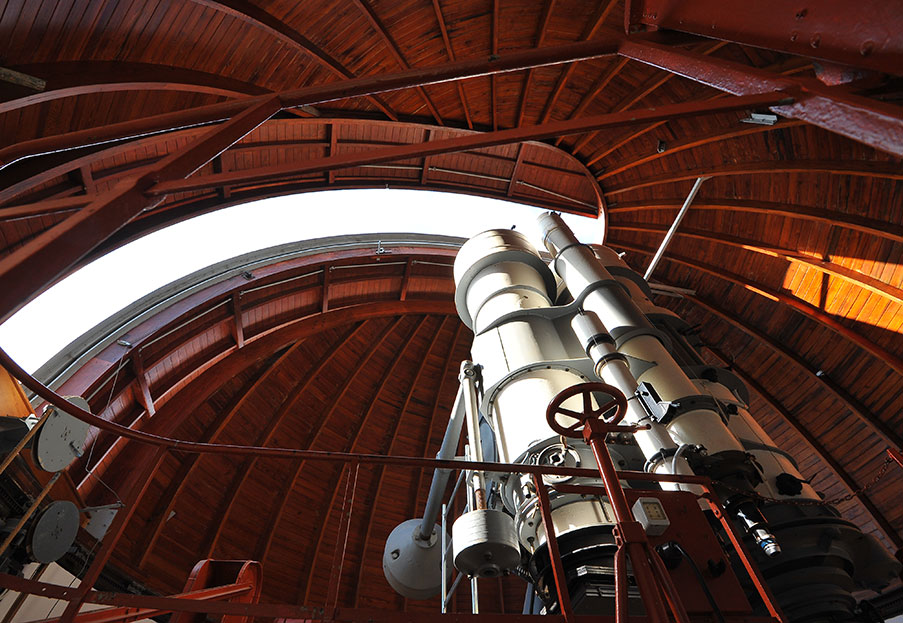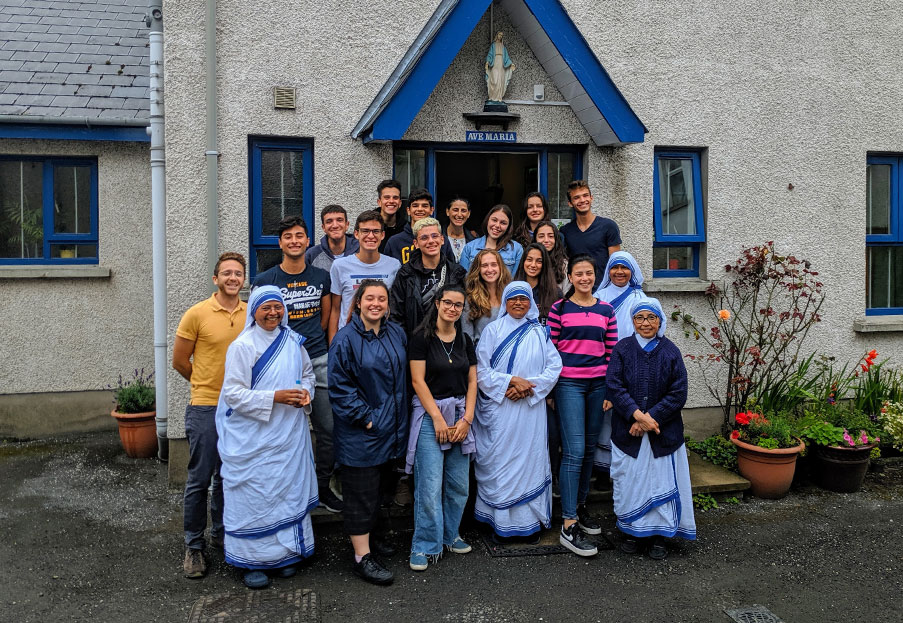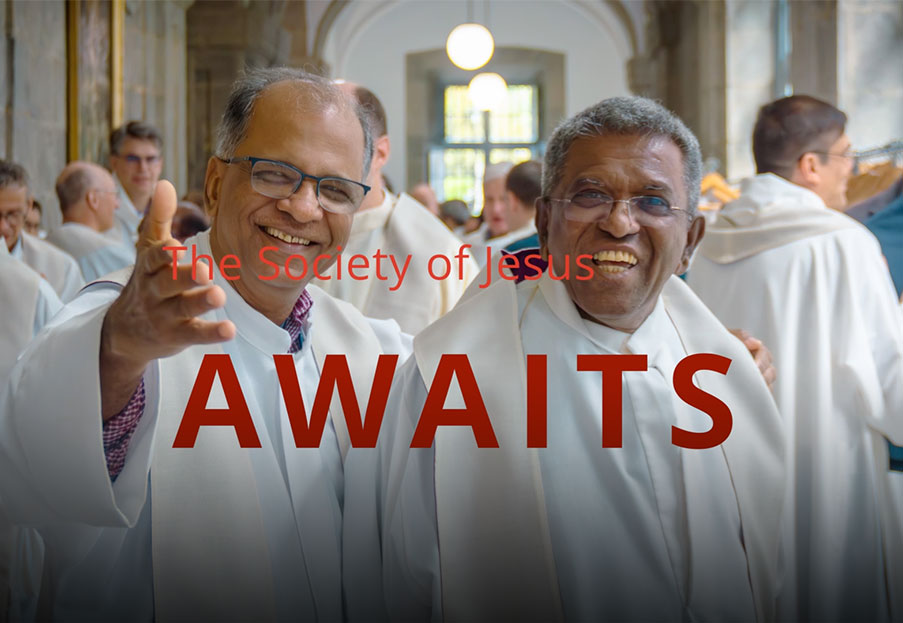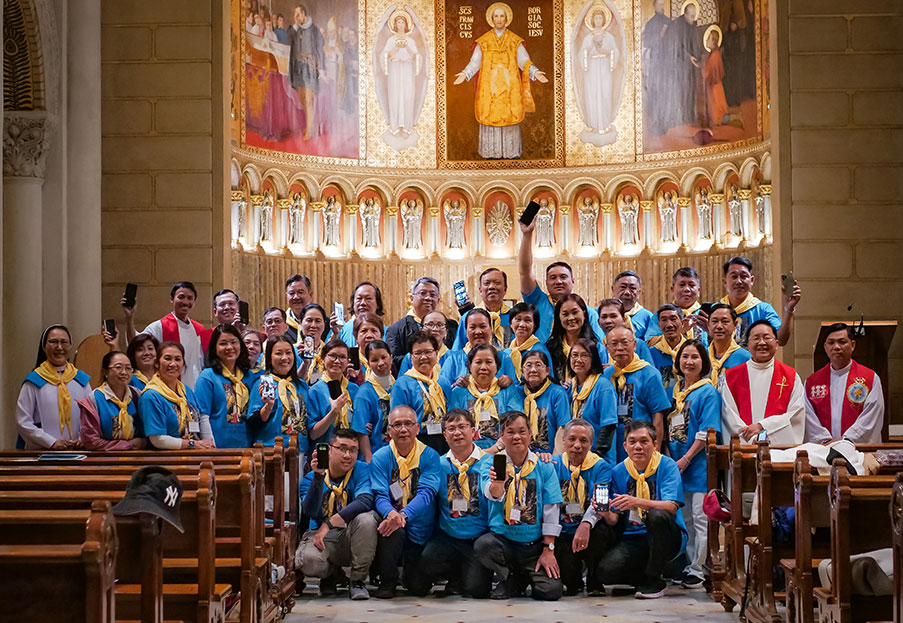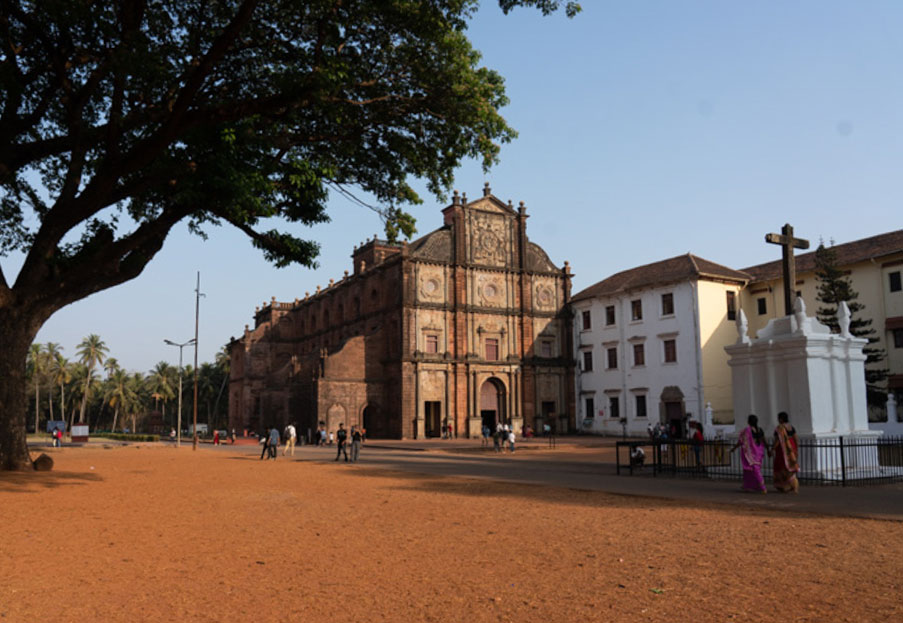Reconciliation: The Mission of the Jesuits in Korea
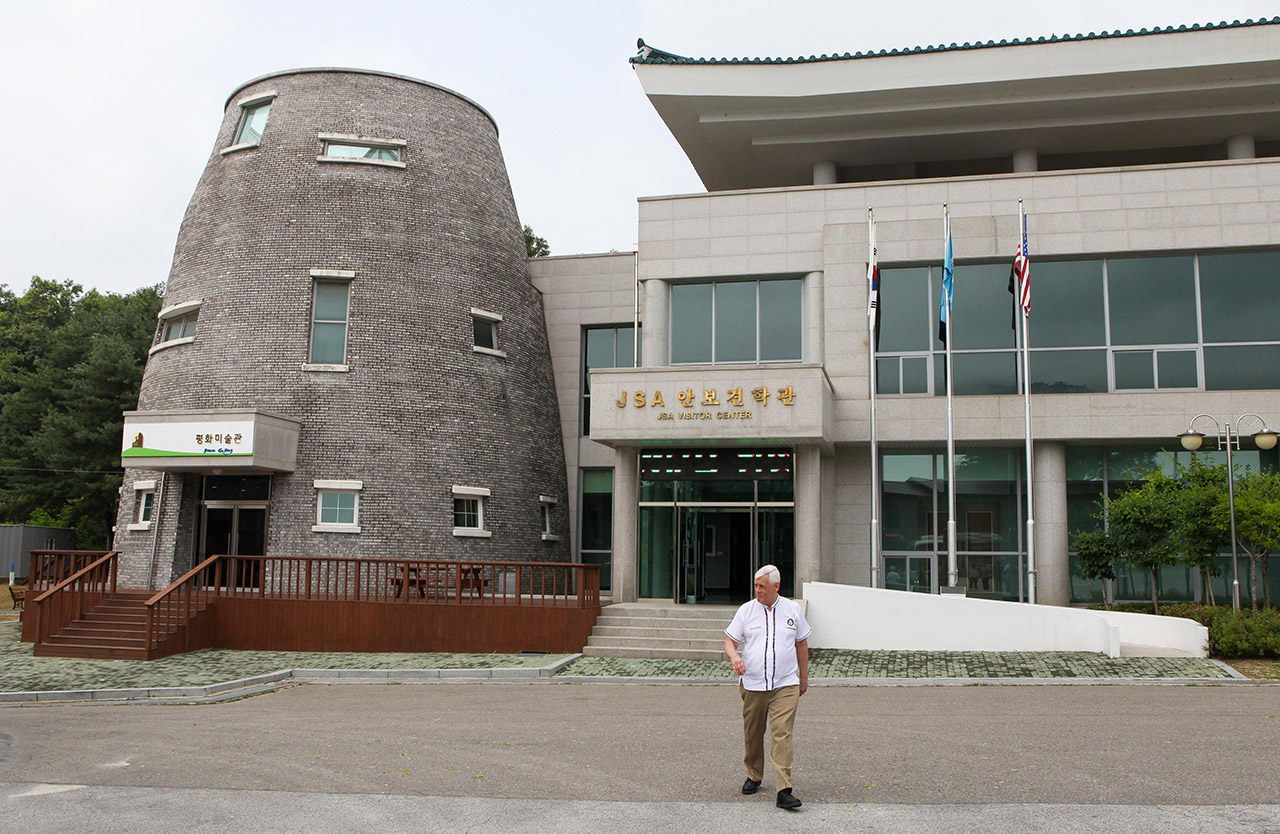
For more than four years Jesuit KIM Youn-su has focused his research on the enigma that is the Catholic Church in North Korea. Since completing his PhD, KIM has spent much of his time giving lectures or holding workshops in which he seeks to correct the stereotypical notions that his fellow South Korean citizens hold of their northern neighbours. His presentations tend to revolve around the story of a Catholic Church resurgent in North Korea, one steeped in a complicated narrative that has been animated by the few lay people who have done similar work since the late 80’s. But for all the nuance and backstory, KIM’s work is essentially that of reconciliation.
The reinvigorated work of reconciliation has been a core tenet in the Society of Jesus since the 35th General Congregation. A profoundly evangelical ministry, reconciliation, together with justice, lies at the heart of Jesuit works ranging from the social sector, to spirituality and education. To achieve the balance of justice, it is often necessary for parties to agree to engage in reconciliation in order to break historical and cultural deadlocks that otherwise poison any movement into the future.
While there is no shortage of examples in which the exercise of reconciliation is required, Korea is one of the more pressing. Since the mid-20th century, North and South Korea have been at war. While the fighting ended with an armistice in July 1953, the two countries have never signed a peace treaty. Since the armistice, an uneasy “frozen conflict” has led to occasional armed conflicts, more than a few instances of international saber rattling, and a constant stream of invective-filled headlines.
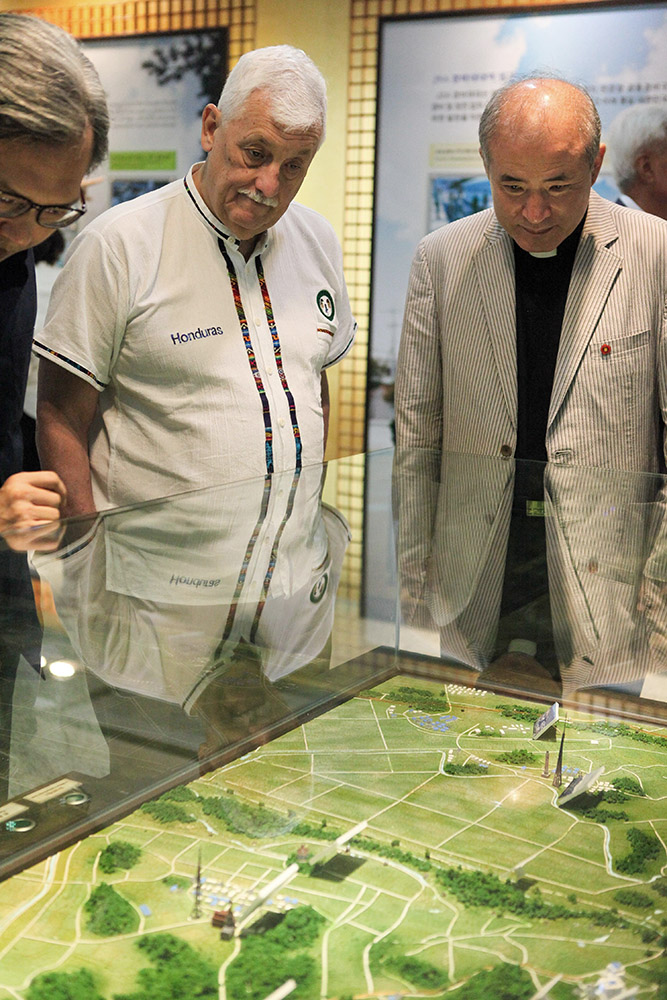
Considering that reconciliation has been a constant theme for Fr. General Arturo Sosa, it was fitting then that Korea Provincial, Fr CHOUNG Che-chon, chose to highlight the conflict and JIM Youn-su’s work during Father General’s visitation of South Korea.
One of the defining moments of the visitation was an “excursion” to the demilitarized zone (DMZ), the neutral ground that serves as the demarcation between the two Koreas. It is an area 4 km wide and 250 km long that runs from one sea to the other. While “DMZ” might evoke images of a place that is “demilitarized”, reality is quite the opposite: thousands of weapons on each side point towards the other over land that has been seeded by up to a million landmines.
Although tensions between the Koreas have eased somewhat since an April 2018 meeting between the leadership of the two countries the area, under United Nations surveillance, remains sensitive and security measures are kept at their highest levels. We were allowed to take images in a small section of the DMZ. We were nevertheless able to take advantage of this visit to speak with KIM Youn-su who shared with us his research on the Church in North Korea and the prospects for reconciliation that could be helped by the work of the Society of Jesus. Watch this short video.
